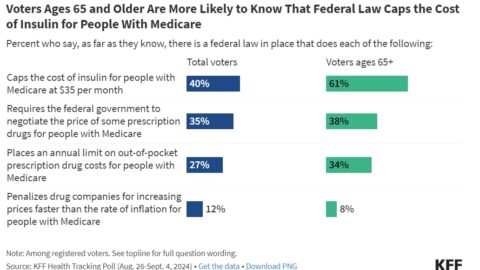If you want to search Cost Curve back issues or link to anything you read here, the web links and archive are online at costcurve.beehiiv.com. You can subscribe there, too.
Correction and note: I mentioned a Senate hearing yesterday, but misstated the committee that is holding the hearing: it’s the Senate Judiciary Committee. Testimony and video available here. Analysis tomorrow.
Optum Rx is launching a new product for its health plan clients: a PBM strategy that “combines guarantees into a single per member cost.” I really have no idea what to make of this, but I have three recommendations:
Read the comments to Antonio Ciaccia’s LinkedIn post on the announcement, which is a nice roundup of skeptical takes.
Read this JAMA Health Forum piece about the dangers of complexity in health care. My sense is that these PBM programs — CVS Caremark and Express Scripts have similar efforts — are making things more complicated, which means more details and more devils.
Read this STAT story about CVS’ effort, back in December, to introduce cost-plus options. That story concludes that patients probably won’t benefit, and it’s a good baseline for assessing the Optum Rx news.
Will any of this help you understand what Optum Rx is doing? Probably not. But it might help explain why they’re doing it.
I don’t think anyone who has been seriously looking at the policy environment thinks that the current FTC is going too easy on pharmaceutical companies. The FTC has spent the last 18 months — at least — working overtime to scuttle deals based on novel readings of the law and expansive thinking about what is and is not anticompetitive.
Last year, the commission unsuccessfully tried to blow up Amgen’s acquisition of Horizon based on an absurd hypothetical around bundled rebates. And they did blow up Sanofi’s acquisition of Maze based on a view of orphan drug competition that had little basis in reality. (I suggested, at the time, that the Maze debacle was, maybe, “low-key, the story of the year.”)
With that as background, there is a new JAMA analysis of FTC actions out from the Harvard PORTAL folks that does a lot of Harvard PORTAL things, which is to say: it implies that a handcuffed FTC is falling down on the job, and it offers a rip-roaring endorsement of efforts to further empower the agency: “Congress may need to strengthen the FTC’s hand to reduce the burden of pharmaceutical consolidation and unfair practices on the health care system and patients.”
Part of the argument here is based on numbers that, like most Harvard PORTAL work, feel compelling on the surface but questionable upon deeper thought.
In this case, the authors look at the number of divestments requested by the FTC over time as a part of M&A regulation, showing that, especially for branded medicines, the number of requested divestments appears to have fallen off in recent years.
But there’s no accounting for the differences in deal flow or type, which are highly variable in number and type from year to year. Is the FTC really asking for fewer divestments? Or are fewer big companies with marketed products merging? Are companies being more sensitive in their moves? Are the numbers here big enough to feel confident predicting trends? Is the FTC intervening less often but more aggressively?
Those are interesting questions! That go entirely unexplored! It’s entirely possible that, sure, the FTC is off its game. But it’s hard for me noodle on the JAMA data and feel convinced.
STAT reported that House Oversight wants to bring PBM executives to the Hill in a couple of weeks. And I want a surfboard.
Launch Pricing Alert: Amgen won FDA clearance for Imdelltra, its small-cell lung cancer drug. The price, per Fierce, will be $31,500 for the first 28-day cycle and $30,000 for cycles after that. That gives an annualized price of somewhere around $360,000, but Amgen told media that the median duration of treatment is about 5.5 months, meaning the usual cost per patient is lower. Interestingly, Amgen held a conference call on the approval, which is somewhat unusual for a larger company, but didn’t mention or discuss price. (slides here)





